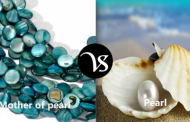 Boat:
Boat:
A boat is a watercraft of any size designed to float or plane, to work or travel on water. Small boats are typically found on lakes or in protected coastal areas. Boats have a wide variety of shapes and sizes and construction methods due to their intended purposes, available materials or local traditions. Boats have serves as transportation since early times. Boats can be categorized into main three types: unpowered or human-powered boats, sail boats and motor boats.
Ship:
A ship is a large buoyant watercraft. Ships are distinguished from boats based on size, shape and cargo or passenger capacity. Ships are used on lakes, seas and rivers for a variety of activities such as the transport of people or goods, fishing, entertainment, public safety and warfare. Ships were always a key in history’s great explorations and scientific and technological development. A commonly used rule of thumb is that if one vessel carries another, the larger of a two is a ship.
Differences:
| Basis | Boat | Ship |
|---|---|---|
| Definition (www.oxforddictionaries.com) |
A small vessel for travelling over water, propelled by oars, sails, or an engine | A large boat for transporting people or goods by sea |
| Synonyms | Scow, launch, ark, gig, sailboat, canoe, vessel | Route, transfer, post, haul, ferry, carry, embark, forward |
| Types | The types of boats are:
|
The types of ship are:
|
| History | Dugouts are the oldest type of boats found by archaeologists, and boats have served as transportation since the earliest times. Circumstantial evidence, such as the early settlement of Australia over 40,000 years ago, findings in Crete dated 130,000 years ago, and findings in Flores dated to 900,000 years ago, suggest that boats have been used since prehistoric times. | The first known vessels date back about 10,000 years ago, but could not be described as ships. The first navigators began to use animal skins or woven fabrics as sails. Affixed to the top of a pole set upright in a boat, these sails gave early ships range. |
| Word origin | The word was originated Old English bāt, of Germanic origin. | The word was originated Old English scip (noun), late Old English scipian (verb), of Germanic origin; related to Dutch schip and German Schiff. |
| Operates | It operates usually inland (lakes) or in protected coastal areas. | It operates in oceans, seas, rivers, lakes and most deep water bodies. |
| Pronunciation |
|
|
| Example in Sentence |
|
|





